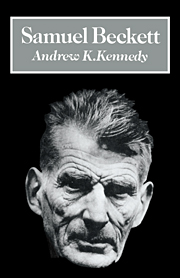7 - Contexts for the fiction
Published online by Cambridge University Press: 23 February 2010
Summary
Beckett's novels are radically innovative, yet they grow out of, or lean against, certain traditions of fictional writing. Among these is the tradition that parodies the act of writing a novel itself, initiated, in many provocatively funny variations, in Sterne's Tristram Shandy (1760–7). In that mode of fiction the writer is for ever conscious of himself and of writing – the empty sheet on the table, the silence, the compulsion to invent, ‘to lie’, the physical act of wielding pen or pencil (no other writing implements in Beckett). And the ‘story’ being told is simultaneously seen as an artifact being shaped, here and now: open-ended in many potential directions yet tediously bound by the teller's labour. Frequently, especially in Moll, remnants of the once-strong picaresque novel are fused with this self-conscious fictionalising: a journey with adventures, chance digressions, inner stories and authorial commentaries filling in the fictional space. The outcasts, the bums, the cripples and the sad wretches that people Beckett's world of fiction are ‘at home’ on the abandoned road, in the ditch, on the sickbed, and perhaps unimaginable in the social contexts of realist/empiricist fiction.
Along with the novel-parodying mode goes a savagely ironic self-inspecting narrator. Aware of the decay of (his) body–mind and its functions, this narrator (elegiac when not satirical, accompanied by Swiftian savage laughter) presents a ceaseless commentary on his non-well-being. His existential perplexities – about his present and past state of being and experiencing – are at least as significant as the ‘story’ he sets out to tell.
- Type
- Chapter
- Information
- Samuel Beckett , pp. 103 - 108Publisher: Cambridge University PressPrint publication year: 1989

